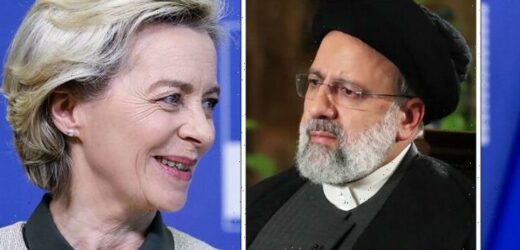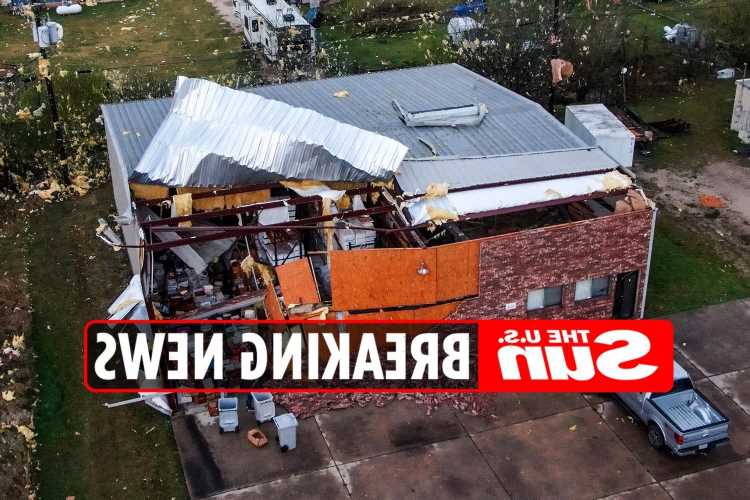Nuclear deal: Iranians detail the impact of economic sanctions
We use your sign-up to provide content in ways you’ve consented to and to improve our understanding of you. This may include adverts from us and 3rd parties based on our understanding. You can unsubscribe at any time. More info
EU finance ministers met on Monday to discuss a fifth round of sanctions to be slapped on Russian President Vladimir Putin, this time eyeing up his energy sector. While the bloc appeared hesitant to sanction gas – 40 percent of its total supplies come from Russia – there was a more evident push to embargo Russian oil. Some countries, such as Ireland and Lithuania, have suggested that an embargo on the Russian oil industry is absolutely necessary to cut off Moscow’s main source of income.
But Germany has argued that the bloc was still too reliant on Russian oil to slap sanctions down, despite the US and the UK already committing to doing so.
That is why Iran, an oil giant, has been tipped to be top of the list during discussions when EU leaders meet at a Brussels summit on Thursday and Friday, Politico reports.
But the Middle Eastern nation has only promised to pump up to 3.8 million barrels of oil a day if the Iran nuclear deal is lifted.
The 2015 nuclear deal, also called the Joint Comprehensive Plan of Action, saw Iran agree to a long-term deal with a group of countries dubbed the P5+1 to limit its nuclear activities and allow international observers in.
This was in return for the lifting of crippling economic sanctions.


The P5+ 1 includes the US, UK, France, China, Russia and Germany.
But back in May 2018, former US President Donald Trump abandoned the JCPOA and reintroduced sanctions on Iran.
Now, any new relationship between the EU and Iran appear to rely on striking a renewed agreement so it can become a reliable trading partner and an alternative to Putin.
This is something that Iran’s oil minister, Javad Owji, has pledged.
He said earlier this month that Iranian oil production capacity can reach its maximum less than two months after a nuclear deal is reached.

Mr Owji said: “As soon as nuclear negotiations in Vienna are concluded, we can reach our maximum oil production capacity in less than one or two months.”
The EU appears to be well aware of this, having chaired the meeting in Vienna and worked closely on negotiations.
Iran pumped 2.4 million barrels per day on average in 2021.
It plans to ramp up its output to 3.8 million barrels per day if sanctions are lifted as a result of a renewed nuclear agreement.
Negotiations to revive the deal have been going on for 10 months in Vienna.
DON’T MISS
Putin blinks first: Bumper gas supplies sent to EU [REPORT]
Putin sent horror warning over next Ukraine move: ‘WW3!’ [INSIGHT]
Putin bowel cancer speculation fuelled by ‘Moon face’ fears [REVEAL]


While it was earlier thought that talks were reaching their final stages, the tone appears to have changed in recent weeks.
On Monday US State Department spokesman Ned Price said that “an agreement is neither imminent nor is it certain”.
While Mr Price did acknowledge that “significant progress” has been made in Vienna over the last few weeks, he did not seem confident that relations would get smoothed over soon.
He said: “In fact, we are preparing equally for scenarios with and without a mutual return to full implementation of the JCPOA.
“President Biden has made a commitment that Iran under his watch will not be allowed to acquire a nuclear weapon.
“And that commitment is as true and sturdy in a world in which we have a JCPOA and one in which we don’t.”
Source: Read Full Article


